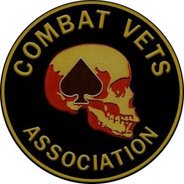War Stories: Carter and Beauchamp
Phil Carter wrote about Beauchamp on Slate, his blog and spoke to NPR.
If I understand his point, even if Beauchamp's story is exaggerated and/or fabricated and the New Republic failed its editorial responsibility, he is concerned that true stories about the (uncomfortable/awful) realities of war are not (will not be) heard by the public.
What I found most interesting was Carter's seeming contradiction in his own assessment of the veracity of Beauchamp's anecdotes:
I am deeply skeptical about the veracity of Beauchamp's dispatches, particularly the last one, but disinclined to offer definitive pronouncements at this time....There were many technical and organizational reasons to be skeptical of Beauchamp's tales. I find it difficult to believe that Carter's military friends were not as skeptical as he was. I'm also surprised that Carter doesn't express support for publicly questioning Beauchamp's tales given his own skepticism.
Among military circles, the reaction to Beauchamp's stories has been mixed. A number of my friends were disturbed by the article, especially what it implied about his unit and its leadership, but very few questioned its basic truth.... Beauchamp's tale was neither believable nor patently untrue on its face.
I was disturbed by Beauchamp's article because of my own deep skepticism that it was true. I would have been more disturbed by the article, and what it implied about Beauchamp's unit and leadership, if it was true.
Beauchamp disturbs me either way. Either his tales about his own disturbing behavior are true or he exaggerated/fabricated them.
It's also one thing to tell exaggerated or fabricated personal and secondhand "war stories" at "unit reunions and American Legion halls" and quite another to publish them publicly as nonfiction to further your personal ambition as an "author."
At the end of his Slate piece, Carter offers advice for journalists attempting to tell the story of what happens in wartime:
... The New Republic erred in granting Beauchamp a pseudonym. In this instance, Beauchamp's personal credibility as a combat infantryman would have bolstered his reports immeasurably.... The lesson here is that in war reporting, as with all reporting, you can certainly use anonymous sources, but only with the proper due diligence.Granting Beauchamp a pseudonym was not the error. Identifying Beauchamp as a combat infantryman rather than as a soldier would not have "bolstered his reports immeasurably." There is no first and second lesson, as Carter suggests, but just the one: "The lesson here is that in war reporting, as with all reporting, you can certainly use anonymous sources, but only with the proper due diligence."
The error was granting Beauchamp a pseudonym without investing the editorial oversight required of a publication doing so ("proper due diligence"). That's the difference between being an Internet Service Provider for a self-publishing anonymous military blogger in Baghdad, and being the New Republic publishing articles by a pseudonymous "
It is also the comparison between "Jeff Gannon" and "Scott Thomas" that the New Republic should want to avoid. "Jeff Gannon" was a pseudonym for a partisan hack getting White House day passes writing for an obscure partisan website. "Scott Thomas" was a pseudonym for a " writing a diary for the magazine's print edition and website. If the comparison becomes a distinction without a difference for the American public, the credibility of the New Republic is in real trouble.
Related:
The Army Responds
Why I Serve: An affluent big-city lawyer explains why he did
Previous:
Not Blogging About Beauchamp





No comments:
Post a Comment